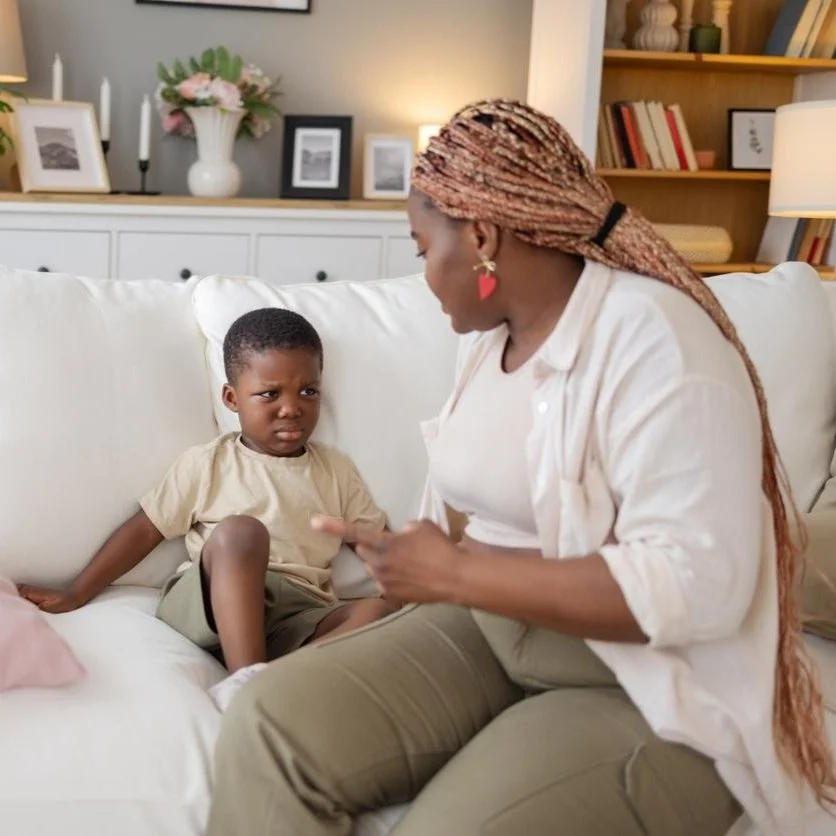Spare the Rod?: The Effects of Discipline on Black Children
Understanding the cultural and systemic factors influencing discipline for Black children highlights the importance of empathetic and equitable practices that nurture growth and resilience. We discuss it here!
Photo Credit: PixelsEffect via iStockPhoto.com
By: Jamila Gomez
Discipline plays a significant role in shaping children’s lives, instilling values, and guiding behavior. For Black children, the effects of discipline are deeply influenced by the historical, social, and cultural contexts that inform their upbringing. Understanding how discipline impacts Black children requires exploring both its potential benefits and pitfalls, especially within the framework of systemic challenges and cultural strengths.
Cultural Foundations of Discipline in Black Families
In many Black households, discipline is seen as a tool to prepare children for the realities of a world that can be harsh and unforgiving. Historically, Black parents have faced the dual burden of teaching their children respect and self-regulation while shielding them from systemic racism. For many, discipline becomes a strategy to help children navigate a society where minor missteps can have disproportionately severe consequences. This emphasis on structure, respect, and accountability is often rooted in love and the desire to ensure survival in a world fraught with inequities.
The Positive Impacts of Discipline
When applied thoughtfully, discipline can empower Black children with life skills like resilience, self-control, and responsibility. Structured environments and consistent expectations can help children develop a sense of agency, boosting academic and social outcomes. Discipline rooted in cultural affirmations and open communication fosters self-confidence, cultural pride, and the ability to withstand societal pressures.
Community-oriented discipline, which includes guidance from extended family and mentors, offers additional support. This collective approach—rooted in African and African-American traditions—teaches children the value of interdependence, mutual accountability, and cultural heritage.
The Risks of Harsh or Misapplied Discipline
However, discipline can have adverse effects when it is overly punitive or harsh. Research indicates that Black children are more likely to experience corporal punishment than their peers, both at home and in school. While some view this as a culturally normative practice, excessive or inconsistent discipline can lead to feelings of fear, resentment, or low self-esteem. These outcomes are exacerbated when discipline is devoid of positive reinforcement or explanation, leaving children feeling misunderstood rather than guided.
In schools, Black children are disproportionately subjected to exclusionary disciplinary actions, such as suspensions or expulsions. This systemic bias can undermine their academic progress and contribute to the school-to-prison pipeline. When authority figures perceive Black children as older or less innocent than their peers, disciplinary actions often reflect these biases, perpetuating cycles of inequality.
Striking a Balance
To maximize the benefits of discipline while minimizing harm, it is essential to adopt culturally responsive approaches. Practices that emphasize empathy, understanding, and restorative justice can address misbehavior while affirming the child’s dignity. Black parents, educators, and communities must advocate for approaches that balance accountability with compassion, recognizing the unique challenges Black children face.
In conclusion, discipline can be a powerful tool for nurturing growth, but its effects depend on its application. By fostering supportive, culturally aware, and equitable practices, we can ensure that discipline serves as a pathway to empowerment, not oppression.
YOU MAY ALSO BE INTERESTED IN:
SHARE TO SOCIAL MEDIA
Managing Mental Health in a World Where Black Women’s Experiences are Ignored
Black women navigate mental health challenges at the intersection of race, gender, and societal expectations, while combating stereotypes, healthcare bias, and the need for culturally competent care. We discuss it here!
Photo Credit: ijubaphoto via iStockPhoto.com
By: Jamila Gomez
For Black women, mental health management often involves navigating the unique intersection of race, gender, and cultural expectations in a world that rarely recognizes or validates their experiences. Societal stereotypes often depict Black women as inherently strong and resilient, yet these perceptions can lead to the dangerous dismissal of their mental health needs. The “strong Black woman” stereotype, while intended to convey strength, often prevents Black women from feeling safe in expressing vulnerability or seeking help, perpetuating cycles of unaddressed stress, anxiety, and depression.
One major barrier to mental health care is the healthcare system itself, which has a history of marginalizing and misdiagnosing Black women. Studies reveal that Black women face higher rates of misdiagnosis in mental health care, often due to racial bias. Additionally, many may feel uncomfortable with therapists who lack cultural competence or understanding of their lived experiences, leading to a sense of isolation within therapeutic spaces.
To manage mental health effectively, Black women benefit from culturally relevant resources, such as community support groups, wellness practices rooted in their cultural background, and therapists who are trained in racial trauma. Black mental health professionals, though underrepresented, offer an essential perspective in providing a safe space for Black women to express their full experiences without fear of judgment.
Self-care is also a critical part of mental health management for Black women. Practices like journaling, mindfulness, and affirmations can serve as powerful tools for emotional regulation. But self-care alone is not enough; societal change is essential. Advocacy and systemic reform can ensure that Black women receive the mental health support they deserve.
By prioritizing mental health, validating experiences, and pushing for inclusive mental health care reform, we can create a more compassionate world that honors the needs and experiences of Black women.










